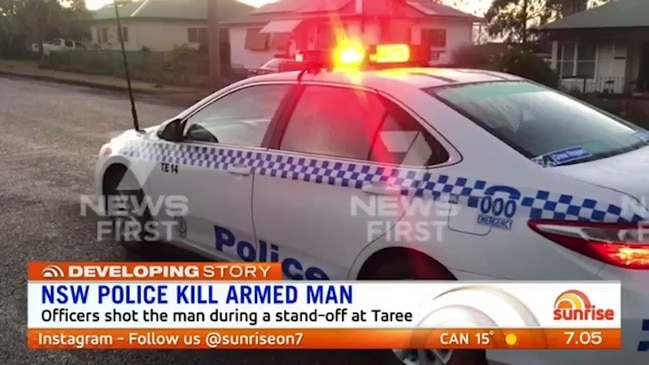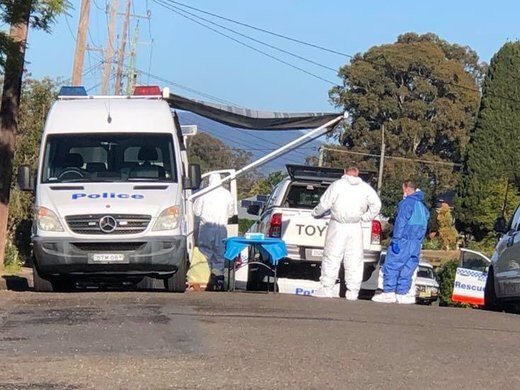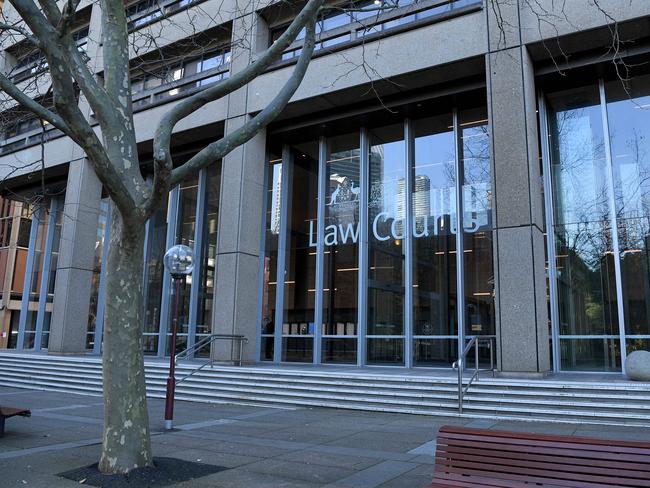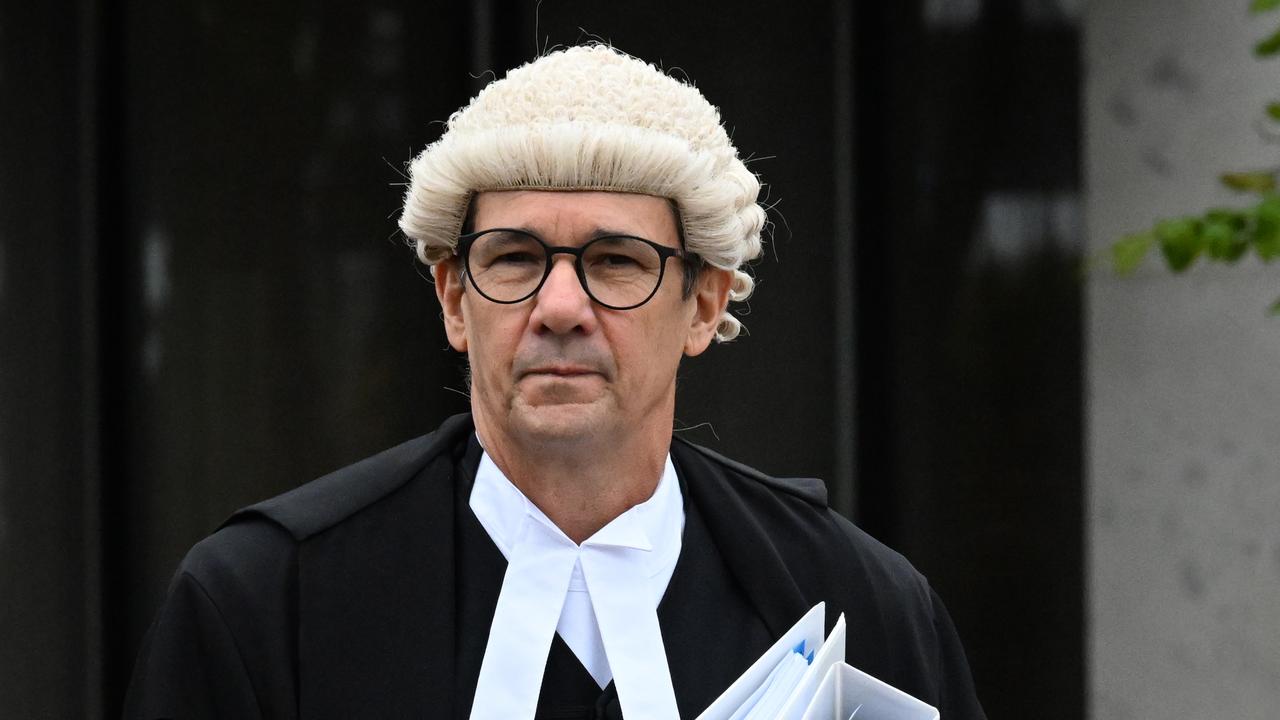Police top brass fight for secrecy in court after Todd McKenzie shot dead
The family of NSW man Todd McKenzie, shot and killed in a police siege, have gone three years without answers. Now a court has revealed a police legal bid to keep tactics and weapons out of the public eye.

Police & Courts
Don't miss out on the headlines from Police & Courts. Followed categories will be added to My News.
It’s been three years since Todd McKenzie was shot dead in a stand-off with police, since then a grindingly slow inquiry into his death has felt more like a “cover-up” than a search for answers for his family.
Now a court has revealed some of the seemingly “endless” delays stem from the NSW Police Commissioner’s legal battle to keep closely guarded information about highly trained, specialist officers out of the hands of the state coroner.
Mr McKenzie, 40, was believed to have been experiencing a schizophrenic episode at his home in Taree when he picked up a butcher’s knife and caused a police siege in July, 2019.
A specialist police unit, known as Tactical Operations, stormed the home late at night as negotiations stalled.
It was reported, at the time, that Mr McKenzie was shot after he allegedly lunged at them with the knife.

No conclusions have yet been reached about Mr McKenzie’s death.
Assistant Commissioner Max Mitchell, speaking to media at the time, said police had been concerned for Mr McKenzie’s welfare and tried to use nonlethal weapons to stop him.
“Non-lethal tactics by tactical police were utilised, which included the use of tasers, but all nonlethal actions were ineffective, and unfortunately and tragically, this man was shot,” he said.
Police declared a critical incident, as they do with every death involving officers, in order to ascertain exactly what happened in the siege.
The NSW Coroner, which routinely conducts inquiries into deaths involving police, also began investigating.
Investigators working for Deputy State Coroner Harriet Grahame, last year, compiled a brief of evidence about the death of Mr McKenzie.

The NSW Police Commissioner, citing public interest immunity laws, asked to keep some of the evidence out of the coronial investigation, or at least suppressed from the public.
The Coroner refused.
The Commissioner, earlier this year, asked the NSW Supreme Court to intervene saying the Coroner had “failed to balance the public interest” against the need to keep the information secret.
The court’s orders, released at the end of May, give a rare insight into highly secretive and rarely deployed police units and tactics which the Commissioner wants to keep under wraps.
The court orders reveal the Police Commissioner wants to keep quiet details of tasers which are used by “certain officers” and are different to those used by general duties police.
It’s not clear if those tasers were deployed against Mr McKenzie and it’s not revealed exactly what makes them different, only that they should remain out of the inquest.
Secondly, police asked to suppress the training undertaken by “certain officers” including the weapons they could access.
A training document, which the Commissioner wants kept out of the public eye, details firearms, ammunition and equipment as well as the training drills and even ranges at which some officers were trained to use the weapons.
The final dispute was over automated welfare checks - police feared a would-be offender could use information from the inquest to convince officers the police are not in danger.

The Coroner and the NSW Supreme Court judge, Justice Robertson Wright, both said police had not explained how an offender could do that.
Police Assistant Commissioner Mark Walton, in an affidavit, had warned divulging the information sought by the coroner could compromise the safety of two or three police units and could even “lead to an increased risk of a terrorist attack”, the court heard.
The Supreme Court agreed to suppress parts of the evidence for 50 years and ordered the Coroner to revisit the claim for public immunity in other areas.
Mr McKenzie’s family were, under the Coroner’s original ruling, likely to get access to much of the closely guarded information, the court heard.
The coroner also pledged to keep much of the inquest public.
“There is, in my view, a very strong public interest in there being an open enquiry into the way in which the police operation unfolded, especially given the mental health issues from which Mr McKenzie was apparently suffering from during the course of that operation,” Ms Grahame wrote.
Mr McKenzie’s family have long railed against feelings of secrecy in the investigation into the 40-year-old’s death.
“We have been promised, since half way through last year 2020, that we would get parts of the brief, and yet there have been huge delays,” Mr McKenzie’s father Mark wrote to a government review panel in September.

“It has felt like a cover-up. I have been disgusted by the delays, which feel like a deliberate attempt to withhold information from our family.”
Mr McKenzie’s father said one of the major reasons was the dispute over the secret information.
“As a family member, it is simply ridiculous that we get prevented from knowing the details of what happened that night, literally for years, because of this process,” he wrote.
Mr McKenzie’s father said he was pushing for the introduction of PACER in the regions, a program where an on-site mental health clinician works with police during such operations.
“I know in my heart that the police need to change the way they approach people with mental illness,” Mr McKenzie’s father wrote.
“Some of these things could have saved Todd’s life.”
The coronial inquest will examine what police resources were deployed to Mr McKenzie’s home, what role did the police negotiation play, would a psychiatrist have been able to help, and was lethal force “justified”.
LIFELINE: 13 11 14
lifeline.org.au




